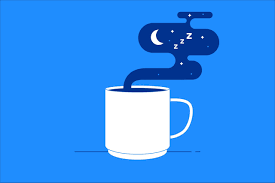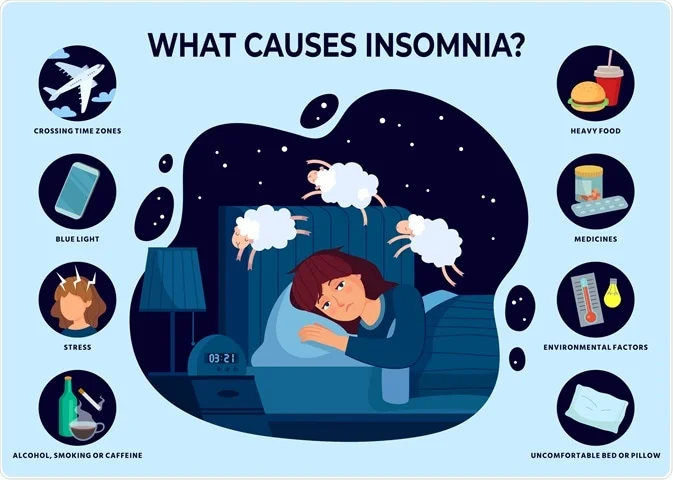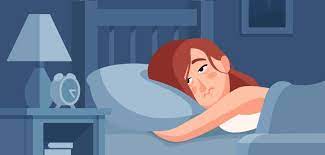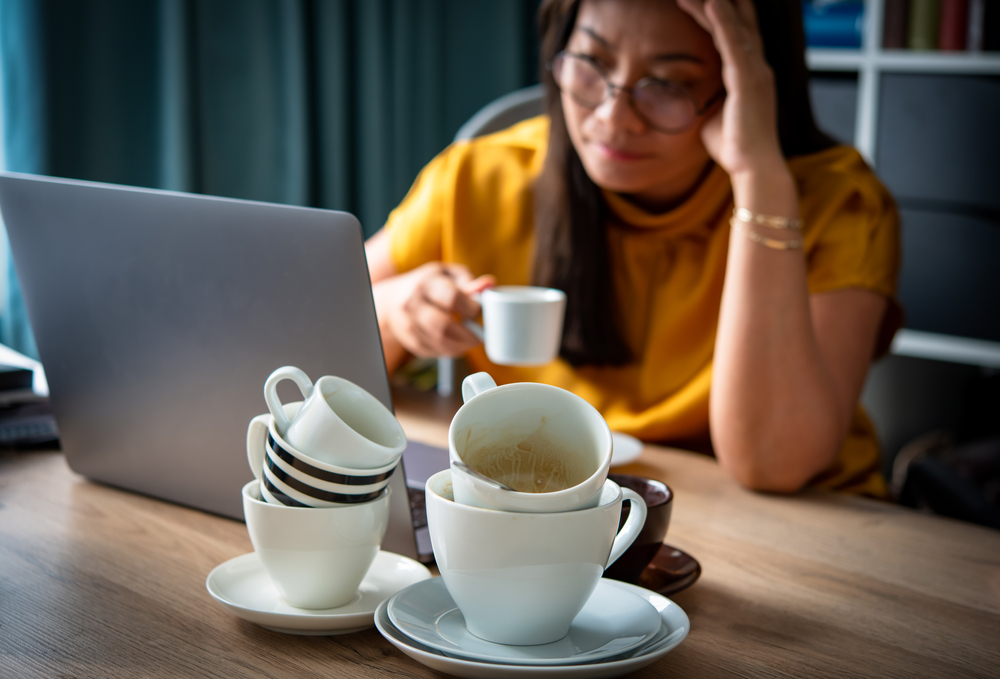Six Reasons That Caffeine Causes Sleepless Nights
Do you have trouble falling asleep at night, and find yourself lying awake for hours? If so, chances are that your caffeine consumption could be the root of your sleeplessness.
Caffeine is a stimulant found naturally in coffee beans and tea leaves, but it is also the most widely used drug in the world. People rely on caffeine to help them stay alert throughout the day and give them a jolt of energy when they need it. But consuming too much caffeine can lead to insomnia and other sleep disorders.
Caffeine is great for waking up in the morning and getting through an afternoon slump, but it may be hindering your ability to get a good night’s rest. This article will discuss six reasons why caffeine causes sleepless nights.
Caffeine and Sleep
Caffeine is a natural psychoactive substance found in many plants, including coffee beans, tea leaves, cacao pods, and kola nuts. Coffee is the most potent caffeinated beverage, with a single eight-ounce cup containing between 95-200mg of caffeine. A 12-ounce soda contains 35-45mg of caffeine, about half the amount of a weaker cup of coffee. Caffeine can reduce sleep time, efficiency, and satisfaction levels, particularly in older adults. It reduces slow-wave sleep which is the stage of deep restful sleep. Sleep deprivation caused by caffeine consumption can lead to fatigue and problems with learning, memory, problem-solving, and emotion regulation.
A study found that consuming caffeine six hours before bedtime can reduce sleep time by one hour. Participants reported sleeping problems when consuming caffeine 0-3 hours before bed. To improve sleep quality it is important to limit any caffeine intake six hours before bedtime. This will help ensure that you get enough restful sleep.

How Does Caffeine Affect Sleep?
Caffeine is a stimulant that can have a significant impact on sleep. It can reduce the amount of time spent sleeping, as well as the quality of sleep. Studies have found that consuming caffeine six hours before bedtime can reduce sleep time by one hour. Additionally, it has been shown to reduce slow-wave sleep, which is the stage of deep restful sleep that leaves us feeling refreshed and alert. Sleep deprivation due to caffeine consumption can lead to fatigue and problems with learning, memory, problem-solving, and emotion regulation.
To improve your sleep quality, consider limiting any caffeine intake six hours before bedtime. This is because the half-life of caffeine in adults is between three and seven hours; meaning that even if you consume it six hours before bedtime, it may still affect your sleep. Furthermore, participants in studies reported sleeping problems when consuming caffeine 0-3 hours before bed. Therefore, it is best to avoid consuming any caffeinated beverages close to bedtime.
Can Caffeine Keep Me Awake?
Caffeine is a widely used stimulant that can provide a burst of energy, but it cannot replace a restful night of sleep. The effectiveness of caffeine varies depending on the dose and the state of the individual. For someone who feels foggy and tired, caffeine may be beneficial in providing an alertness boost. However, for those who are already alert, it can lead to over-arousal and anxiety. In some cases, caffeine can even make people sleepy instead of keeping them awake.
Regular use of caffeine can disrupt sleep patterns and create a cycle of sleep deprivation and increased need for caffeine. This is why regular users may feel overly sleepy in the morning without their usual dose of caffeine. Sleepiness can also be a symptom of abstinence from caffeine, so it’s important to be aware that this could happen if you decide to cut back or quit altogether. Ultimately, while caffeine can provide short-term energy boosts, it should not be relied upon as a substitute for a good night’s sleep.
See also
Can Caffeine Cause Insomnia?
Caffeine is a stimulant that can have an effect on our sleep. It is found in many beverages and foods, such as coffee, tea, energy drinks, chocolate, and some medications. While caffeine can provide a boost of energy during the day, it can also cause insomnia if consumed too close to bedtime. Studies have shown that caffeine consumption six hours before bedtime can reduce sleep time by one hour and increase the severity of sleep-disordered breathing (SDB). Caffeine intake 0-3 hours before bedtime was also associated with reported sleeping problems.
Caffeine consumption can lead to fatigue and problems with learning, memory, problem-solving, and emotion regulation due to a lack of quality sleep. It reduces the amount of slow-wave sleep which is necessary for feeling refreshed and alert in the morning. If you struggle with excessive daytime sleepiness or pre-existing insomnia symptoms, it might be helpful to reevaluate your caffeine consumption habits, especially from sod as, energy drinks, and coffee.

Six Reasons That Caffeine Causes Sleepless Nights
- Caffeine is a stimulant that increases alertness and energy levels, which can make it difficult to relax and fall asleep. It also affects the body’s natural sleep-wake cycle, making it harder to stay asleep for long periods of time.
Caffeine is a stimulant that can have a powerful effect on the body, and it can be difficult to get a good night’s sleep when you’ve had too much of it. Here are six reasons why caffeine can cause sleepless nights:
- Caffeine blocks the production of adenosine, a neurotransmitter that helps regulate sleepiness and wakefulness.
Caffeine is a stimulant that can cause sleeplessness, especially when consumed late in the day. This is because caffeine blocks the production of adenosine, a neurotransmitter that helps regulate sleepiness and wakefulness. When adenosine levels drop, it can make it difficult to fall asleep or stay asleep throughout the night. Here are six reasons why caffeine can lead to sleepless nights:
- Caffeine can increase heart rate and blood pressure, making it difficult to relax and fall asleep.
Caffeine is a stimulant that can have an effect on the body’s cardiovascular system. It can increase heart rate and blood pressure, making it difficult to relax and fall asleep. This is especially true if you consume caffeine late in the day or close to bedtime. Here are six reasons why caffeine can cause sleepless nights:
- Caffeine can increase anxiety and stress levels, making it difficult to relax and fall asleep.
Caffeine is a stimulant that can have an effect on the body’s stress response system. It can increase anxiety and stress levels, making it difficult to relax and fall asleep. This is especially true if you consume caffeine late in the day or close to bedtime. Here are six reasons why caffeine can cause sleepless nights:
- Caffeine can disrupt the body’s natural circadian rhythm, making it difficult to fall asleep and stay asleep throughout the night.
Caffeine is a stimulant that can have an effect on the body’s circadian rhythm, which is the body’s natural sleep-wake cycle. Consuming caffeine late in the day or close to bedtime can disrupt this rhythm, making it difficult to fall asleep and stay asleep throughout the night. Here are six reasons why caffeine can cause sleepless nights:
- Caffeine can interfere with melatonin production, a hormone that helps regulate sleep.
Caffeine is a stimulant that can have an effect on the body’s melatonin production. Melatonin is a hormone that helps regulate sleep, and consuming caffeine late in the day or close to bedtime can interfere with its production, making it difficult to fall asleep and stay asleep throughout the night.

Does Caffeine Make Some People Sleepy?
Caffeine is a stimulant that is widely used to increase alertness and energy levels. However, it can have the opposite effect on some people, making them feel sleepy instead of energized. This can be due to ingesting too much caffeine, drinking coffee late in the day, consuming other foods with caffeine, having an underlying medical condition, being sensitive to caffeine, or having a disrupted sleep cycle.
Regular caffeine use can disrupt sleep and create a cycle of sleep deprivation and increased need for caffeine. Sleepiness can also be a symptom of abstinence from caffeine, especially in regular users. Therefore it is important to monitor your intake of caffeinated beverages and foods if you are prone to feeling sleepy after consuming them. If you find yourself feeling tired after drinking coffee or other caffeinated beverages, it may be best to limit your consumption or switch to decaffeinated options.
Final Thoughts
In conclusion, caffeine can cause sleepless nights due to its ability to increase heart rate and blood pressure, increase anxiety and stress levels, disrupt the body’s natural circadian rhythm, and interfere with melatonin production. Regular caffeine use can also create a cycle of sleep deprivation and an increased need for caffeine. If you find yourself feeling tired after drinking coffee or other caffeinated beverages, it may be best to limit your consumption or switch to decaffeinated options















Leave a Reply